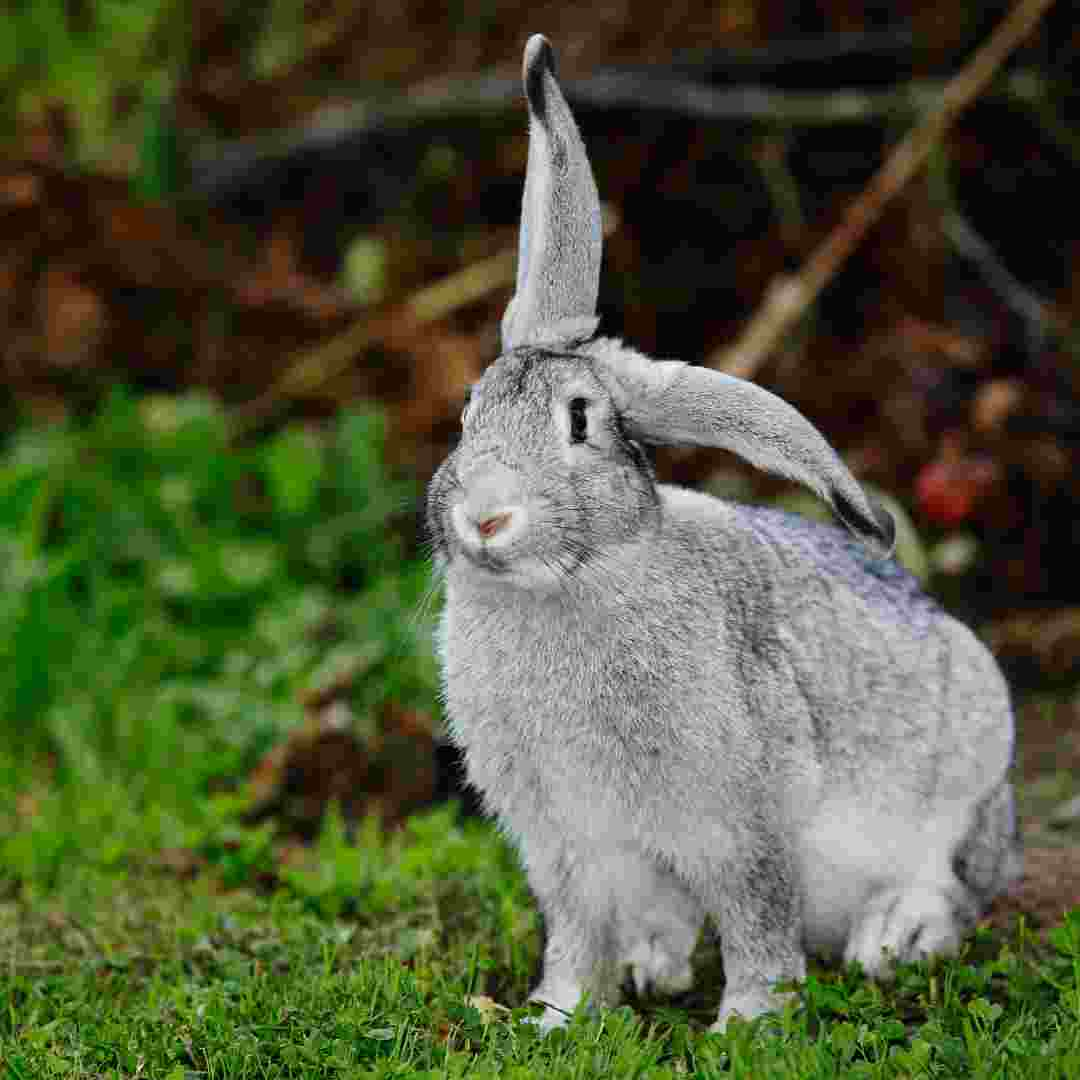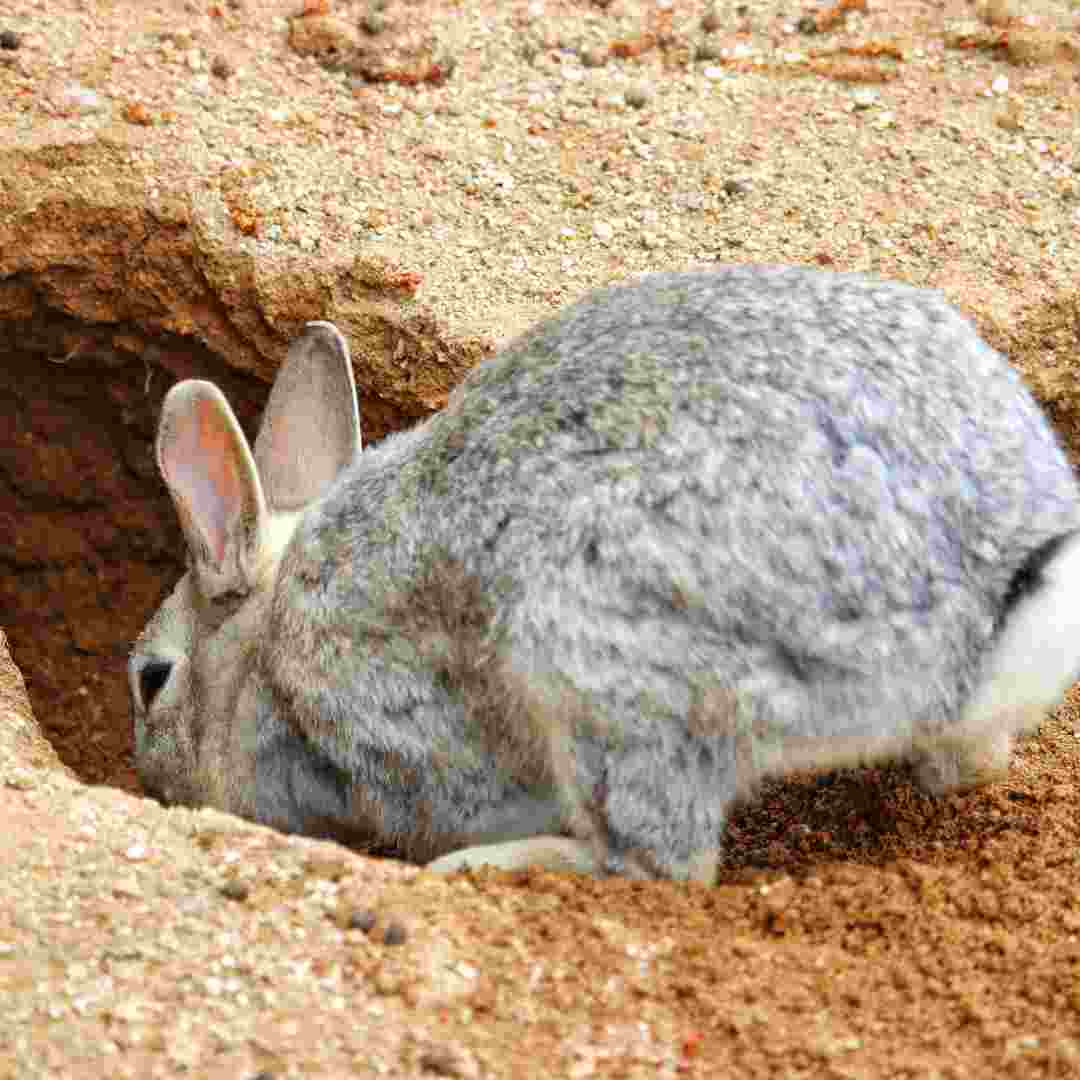Contents Table
Introduction
The Benefits of Rabbit Poop Fertiliser
Collection and Storage of Rabbit Poop for Fertiliser
Best Rabbit Poop Fertiliser Methods
Making Rabbit Poop Tea for Plant Fertilisation
Compare Rabbit Poop to Other Fertilisers
Q&A
Conclusion
Introduction
Rabbit droppings make fantastic garden fertiliser. Plants need nitrogen, phosphorus, and potassium, which it has in abundance. Rabbit excrement contains helpful bacteria and fungus that break down organic materials and improve soil structure. Rabbit faeces is easy to gather and use, adding nutrients to your plants without pricey fertilisers.
The Benefits of Rabbit Poop Fertiliser
Rabbit dung fertiliser is becoming more popular among gardeners and farmers. Rabbit faeces is rich in nitrogen, phosphate, and potassium, which plants need. High in calcium, magnesium, and other trace minerals, rabbit faeces is a good fertiliser for many plants.
Nitrogen is a major benefit of rabbit faeces fertiliser. Green, leafy plants need nitrogen, and rabbit dung is a good source. Rabbit faeces includes phosphate and potassium, which help flowers and fruits develop. Rabbit faeces contains calcium, magnesium, and other trace minerals that benefit plants.
Low odour is another benefit of rabbit faeces fertiliser. Rabbit faeces smells less than other animal manures, making it easier to handle and disperse. Rabbit dung is lightweight and doesn't need specific containers, making it easy to gather and store.
Finally, rabbit faeces is rich in organic matter. Organic matter improves soil structure, water retention, and drainage. This is especially useful in poor soils.
Finally, rabbit excrement fertiliser is great for farmers and gardeners. Rabbit faeces is rich in nitrogen, phosphate, potassium, and trace minerals. Easy to collect and store, it has little odour. Rabbit faeces is rich in organic stuff, which improves soil structure. All of these qualities make rabbit dung a great fertiliser for many plants.
Collection and Storage of Rabbit Poop for Fertiliser
Store rabbit dung for fertiliser to enrich your garden's soil with nutrients. Rabbit manure is a great fertiliser for many plants since it contains nitrogen, phosphate, and potassium. Tips for collecting and storing rabbit dung for fertiliser.
1. Collect droppings daily. Rabbit droppings are small and dry, making collection easier. Collect rabbit droppings from the cage or hutch with a tiny shovel or scoop. Put droppings in a bucket.
2. Keep droppings dry and cool. Rabbit droppings should be kept dry, cool, and out of the sun. A shed or garage is good for droppings.
3. Compost droppings. Rabbit droppings make nutrient-rich soil when composted. Mix droppings with leaves, grass clippings, and kitchen trash to compost.
4. Apply fertiliser. Compost can be used as garden fertiliser once ready. Spread compost around plant bases and mix it into soil.
Store rabbit dung for fertiliser to enrich your garden's soil with nutrients. This guide makes collecting and storing rabbit droppings for fertiliser easy.
Best Rabbit Poop Fertiliser Methods
Rabbit faeces fertilises gardens and lawns well. Plants need nitrogen, phosphorus, and potassium, which it has in abundance. Calcium, magnesium, and trace minerals are abundant in rabbit excrement. It also provides plants with a consistent supply of nutrients as a slow-release fertiliser.
Rabbit dung fertiliser saves money and reduces waste. It is renewable and natural, making it environmentally friendly. Some of the best rabbit faeces fertiliser methods:
1. Composting: Rabbit dung is fantastic fertiliser when composted. Mix rabbit dung with leaves, grass clippings, and kitchen leftovers. The compost must be rotated often to break down correctly. Compost may fertilise plants and lawns once ready.
2. Direct Application: Gardens and lawns can get rabbit dung directly. Sprinkle rabbit dung on the soil and carefully rake it in. Spring and autumn are optimal for this strategy since the soil is wet.
3. Fluid Fertiliser: Rabbit excrement can be made into liquid fertiliser. Mix rabbit excrement with water and let rest for a few days. Before using on plants, strain and dilute the mixture.
Rabbit dung fertiliser provides critical nutrients to plants. It is eco-friendly and affordable. You can turn rabbit dung into nutrient-rich fertiliser for your plants with a little effort.
Making Rabbit Poop Tea for Plant Fertilisation
Rabbit faeces tea fertilises plants naturally. Easy to create, it helps plants grow healthy and strong. Step-by-step instructions for making rabbit faeces tea for plant fertilisation.
First, collect rabbit poop
Collect rabbit dung first. Put a container in the rabbit's cage and let it do its business. Poop should be collected immediately to avoid infection.
Second: Rinse Rabbit Poop
Rinse rabbit excrement after collecting it. This will eliminate dirt and debris. Put rabbit excrement in a strainer and rinse with cold water.
Step 3: Containerize Rabbit Poop
Place washed rabbit faeces in a container. You can use a bucket, jar, or other large container to store rabbit excrement.
Fourth: Add Water
Add water to the container. How much water you add depends on how much rabbit faeces you have. Usually, cover rabbit excrement with water.
Step 5: Steep Mixture
Steep the mixture for 24 hours. This will release rabbit dung nutrients into the water.
6. Strain Mixture
After steeping, strain the mixture using cheesecloth or a fine mesh strainer. This will eliminate big particles.
Step 7: Dilute Mixture
After straining, dilute the mixture. This reduces mixture nutrient content. Usually, dilute the mixture with equal water.
Step 8: Put Mixture on Plants
Finalise by applying the mixture to your plants. The mixture can be poured directly onto the soil surrounding the plants. Spray the mixture on plant leaves with a spray bottle.
You may simply make rabbit faeces tea for plant fertilisation using these techniques. Natural fertiliser promotes plant health and strength.
Compare Rabbit Poop to Other Fertilisers
Successful gardening and farming require fertiliser. Due to its high nutrient content and inexpensive cost, rabbit faeces fertiliser has grown in favour. This post will compare rabbit dung to various fertilisers to help you choose.
Many farmers and gardeners choose organic fertilisers. Organic rabbit faeces is rich in nitrogen, phosphate, and potassium, making it ideal for plant growth. Rabbit excrement contains bacteria that break down organic materials and improve soil structure. Rabbit excrement requires little effort and is cheaper than other organic fertilisers.
Farmers and gardeners can use synthetic fertilisers. Synthetic fertilisers are petroleum-based and provide plants a speedy nutrient boost. Synthetic fertilisers work, but excessive use can harm the ecosystem. Organic fertilisers like rabbit excrement are cheaper than synthetic ones.
Compost fertiliser is also common. Organic elements like leaves, grass clippings, and food scraps make compost. Slow-release compost fertiliser supplies plants with nutrients. Compost improves soil structure and promotes beneficial microbes. Compost is more expensive and takes longer to decompose than rabbit dung.
Finally, rabbit faeces is a cheap and effective fertiliser for gardeners and agriculture. Rabbit manure is cheap, easy to get, and rich in nutrients. Rabbit dung also contains bacteria that assist soil structure and plant growth.

Q&A
1. Are rabbit droppings good fertiliser?
Rabbit dung fertilises well. Rabbit droppings include nitrogen, phosphate, and potassium, which plants need.
2. How often should I fertilise with rabbit poop?
Rabbit dung fertiliser works well every two to three weeks. This ensures your plants get enough nutrients.
3. Safe to use rabbit dung on edible plants?
Rabbit excrement is safe for edible plants. Before applying droppings on edible plants, they must be properly composted.
4. Can I fertilise using rabbit poop?
Apply rabbit dung straight to soil or mix with compost. Droppings should be mixed with compost to distribute nutrients equally.
5. What additional benefits does rabbit poop have?
Rabbit excrement improves soil structure and drainage and provides nitrogen to plants. It can also reduce garden disease and pests.
Conclusion
Finally, rabbit faeces makes good garden fertiliser. It is easy to gather and utilise and rich with nitrogen and other nutrients. Before using rabbit dung, compost it since it may contain parasites and other germs that harm plants. Using too much rabbit faeces in your garden can cause nutrient burn.
